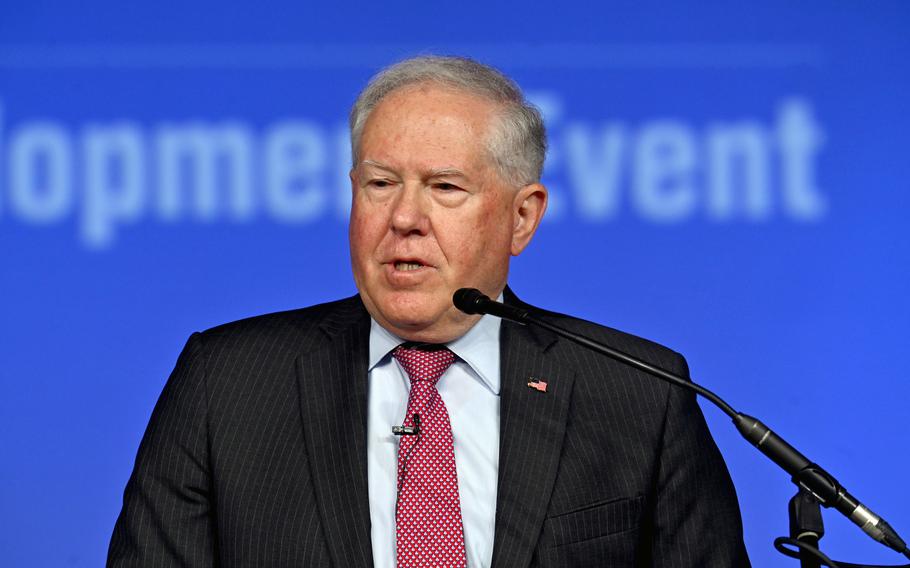
Secretary of the Air Force Frank Kendall speaks at the Air and Space Forces Association’s Air, Space & Cyber Conference in National Harbor, Md., Sept. 19, 2022. (Wayne Clark/U.S. Air Force)
Secretary of the Air Force Frank Kendall on Monday became the latest U.S. defense official to draw attention to China as a threat in the Indo-Pacific region.
During an address to the Air & Space Forces Association, Kendall said the Chinese Communist Party continues to heavily invest in “capabilities, operational concepts and organizations that are specifically designed to defeat the United States” and its Western Pacific allies.
“I’ve been closely watching the evolution of [China’s] military for 15 years. China is not a future threat; China is a threat today,” Kendall said at the convention just outside Washington, D.C., according to a report posted on Defense.gov.
Beijing is focused on developing weapons to target U.S. land and sea assets like air bases and aircraft carriers, according to the report.
Kendall joins a series of defense higher-ups warning recently of Chinese designs on becoming the dominant player in the Indo-Pacific.
In August, Adm. Samuel Paparo, head of Indo-Pacific Command, spoke in Hawaii about China’s threat to take control of Taiwan, which Chinese President Xi Jinping has asserted will become Chinese territory by force, if necessary.
At the same symposium on irregular warfare, Christopher Maier, assistant secretary of defense for special operations and low-intensity conflict, reiterated the Pentagon position that China remains its pacing challenge.
China, along with Russia and North Korea, are threats to regional peace and stability, Maier said.
In July, Ely Ratner, assistant secretary of defense for Indo-Pacific security affairs, said Chinese aggression toward territorial rival the Philippines has transformed the security environment in the region.
He described the reinvigorated “shoulder-to-shoulder” commitment by the U.S. to defend its Philippine ally as “one of the most vital defense partnerships in the world.”
In his turn, Kendall said he sees growing concern and sometimes alarm over Beijing’s increasing strength and assertiveness in the region over the past 15 years. He noted by example China’s larger, more sophisticated exercises aimed at overwhelming Taiwan.
“In addition, China continues to expand its nuclear forces and its ability to operate in cyberspace,” Kendall said. “We can expect all these trends to continue.”
The U.S. must be prepared for a potential conflict, Kendall said. The Air and Space Forces are working on their own massive modernization initiative, he said.
“I am not saying war in the Pacific is imminent or inevitable. It is not,” Kendall said. “But I am saying that the likelihood is increasing and will continue to do so.”